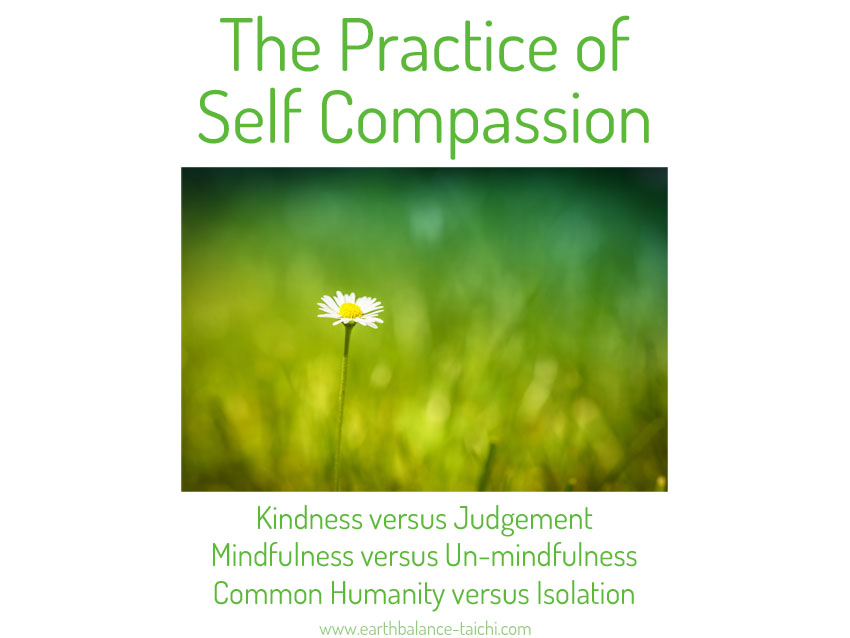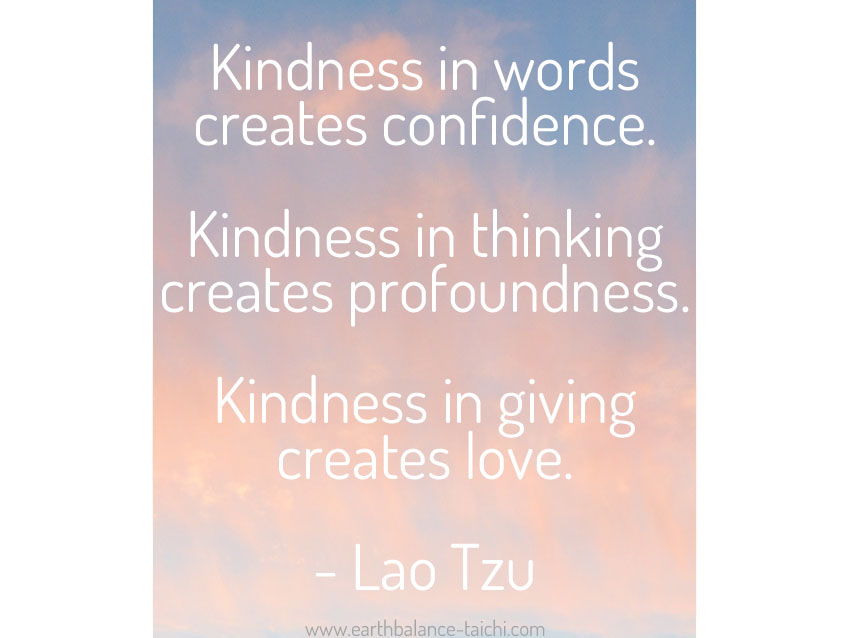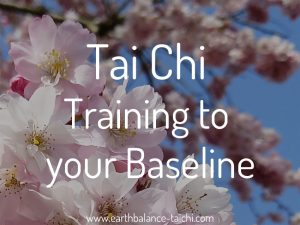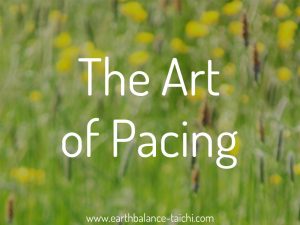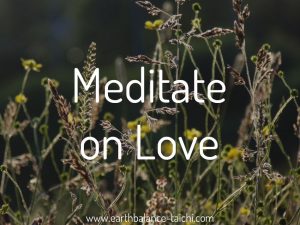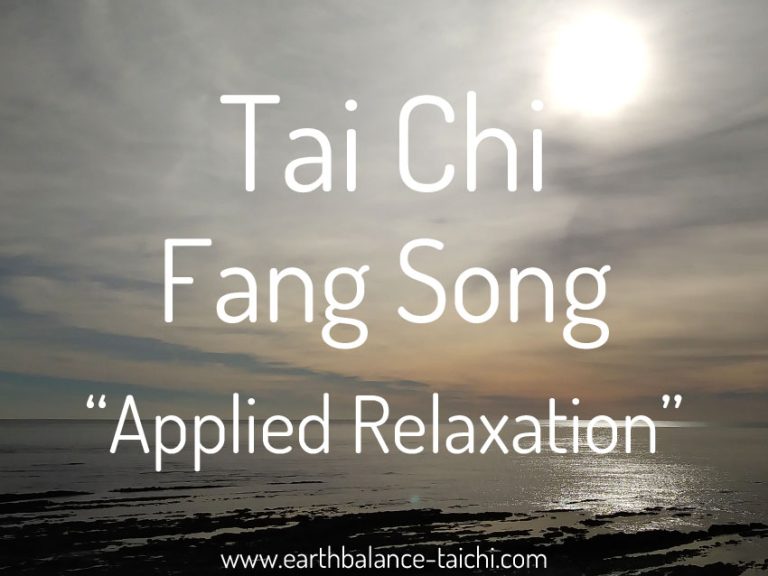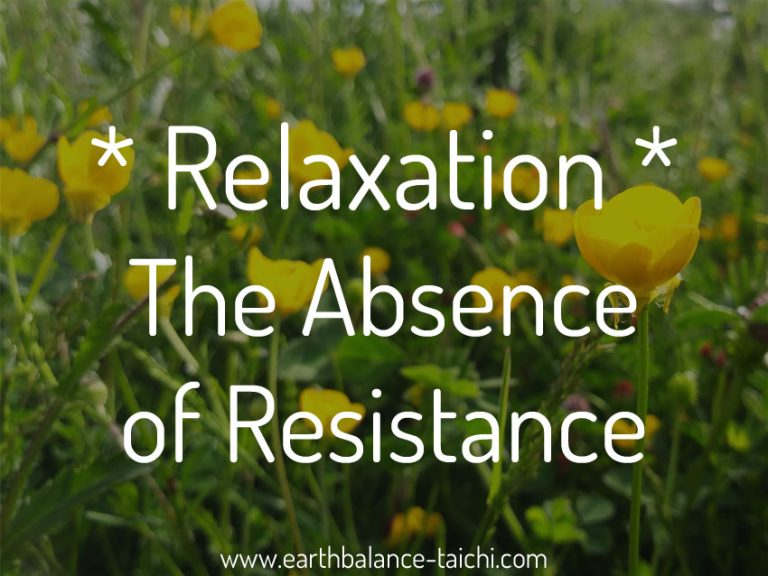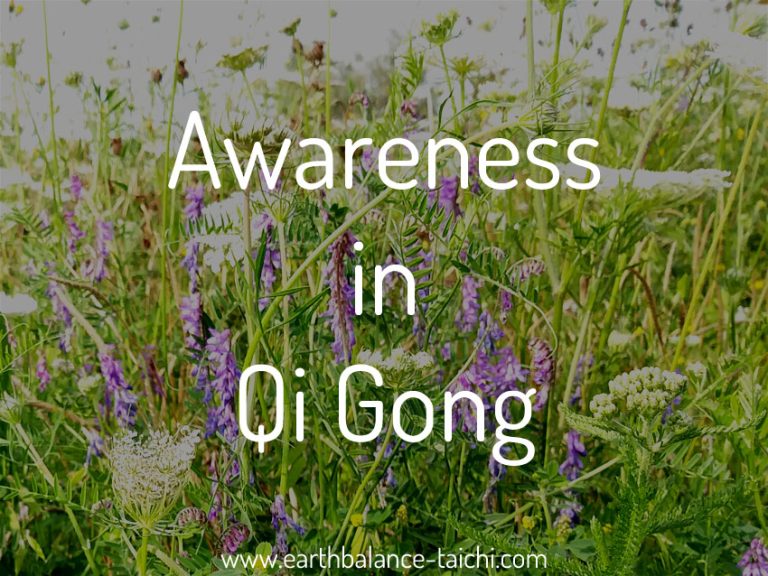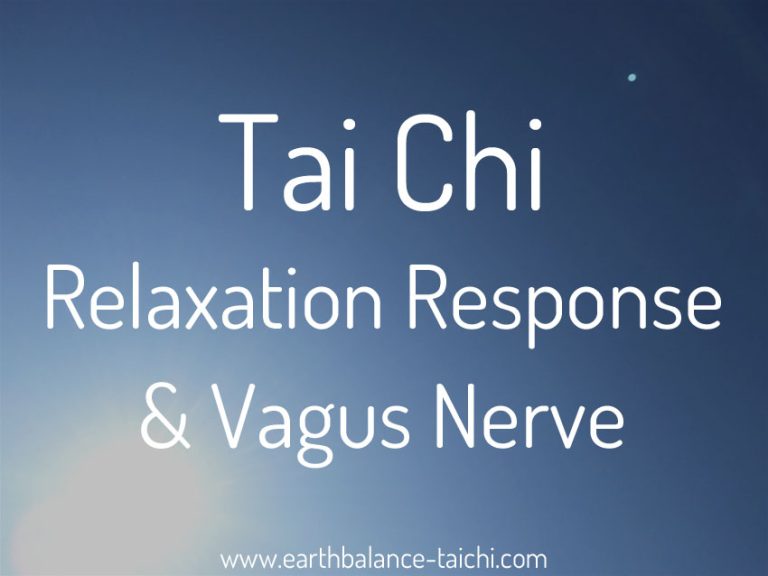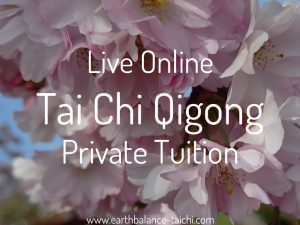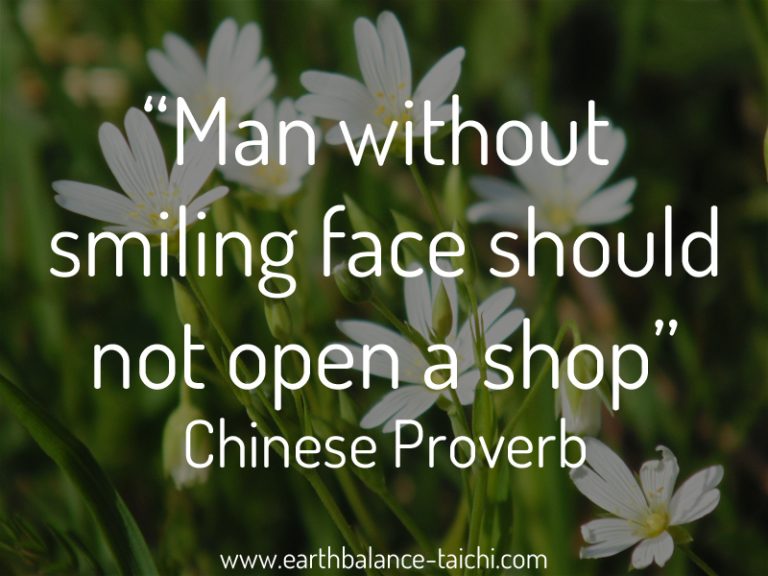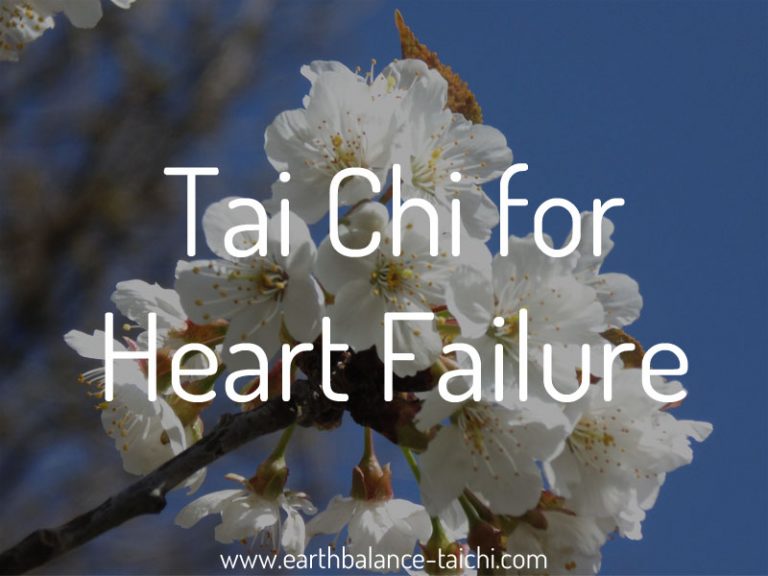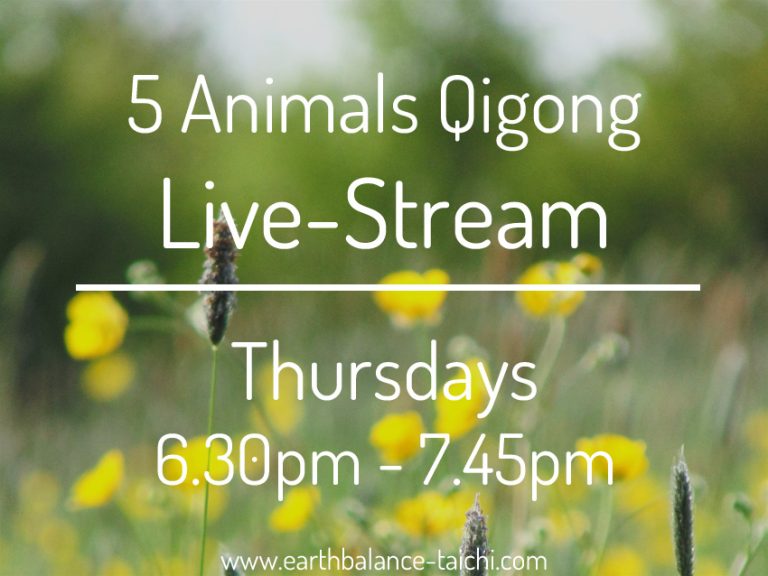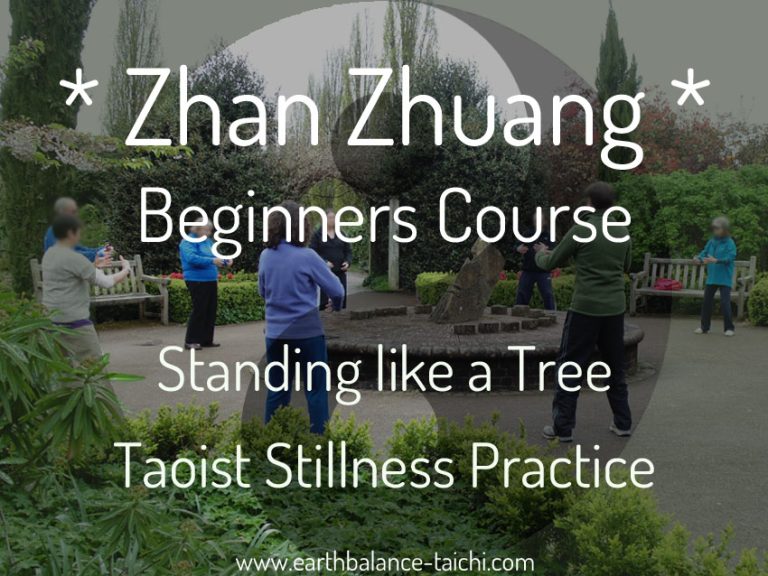Compassionate Tai Chi
Compassionate Tai Chi
Developing Life Skills with Tai Chi
Taoist philosophy trickles down into our Tai Chi and Qigong practice, teaching us how to navigate daily life. Tai Chi and Qigong help us become more compassionate with ourselves and others, which helps us balance our heart-mind. Regular practice of the Classical Chinese arts helps bring about a positive change in personal health, happiness and longevity. The slow-moving exercises and stillness practices slow down the mind, reduce internal chatter and allow us to focus on the moment. Rather than living our days looking to the past or the future, we live as we are, right now.
Tai Chi and Qigong help us uncover our potential, level our emotions, open our frame of mind, and help us feel connected to our natural essence. As a method to help discover, accept and love ourselves, when we are aligned more with our natural state of being, we are more likely to have compassion for ourselves and others. We engage in mindfulness in our practice, allowing and training the mind and body to be fully relaxed, aware and attentive. We become physically and mentally centred in both movement and stillness.
Consider:
- Do you move with compassion?
- Do you think with compassion?
- Do you feel with compassion?
- Do you breathe with compassion?
Kindness versus Judgement
Tai Chi and Qigong are complex practices, indeed life-long arts. With difficulty and struggle in the learning process comes a greater awareness and importance for self-compassion. We embrace mistakes as part of the natural way, we do not criticize ourselves over our form, instead we are diligent and patient with our study and progress. We are relaxed and calm in manner, always striving for greater sensitivity and balance. We learn to work with our individual baselines gracefully, allowing our mind and body to ebb and flow through life whilst responding with kindness.
We observe our experience and do not interfere with ourselves in a negative or judgemental way, we love and forgive ourselves. Being present gives us the space and opportunity to truly listen to our bodies and mind within. With a deeper understanding of ourselves, this changes our understanding and behaviour towards ourselves and others. Encouraging self compassion in your stillness and movement practices will have an impact on compassion in your daily life.
Mindfulness versus Un-mindfulness
In Traditional Chinese Medicine, exaggerated emotions, whether positive or negative create disharmony. Instead we work to foster a neutral position, where there is space and potential to change emotional gears with ease and clarity. We strive to balance our emotions, so that we do not swing from one extreme to the other. We avoid hiding our emotions, ignoring them, denying them or suppressing them in any way. The Taoist inner smile meditation practice is a great foundation to help cleanse, recycle and balance our emotional health. We can be mindful of our emotions, thoughts and feelings by observing them with awareness, non judgement and acceptance. Just like we take care of our physical body, during times of physical pain, we take care of our emotional pain in the same way. Pain in any form, is a great diagnostic tool that helps us work with awareness. We strive to reduce mental chatter, thinking about the past and thinking about the future in an unhealthy way e.g. cyclical negative thoughts and exaggerated negative reactions.
In Tai Chi and Qigong we concentrate on 'the now', our movements and choreography help to keep the mind focused on the present moment. In general students find it easier to release mental tension through movement, than through stillness. These practices are a healthy distraction from 'un-mindfulness' and over time this type of mindful training will help to ease habitual negative thinking. Through practice you are teaching the mind how to return to neutral, by using the body as an example. The mind and body are connected, one can lead the other.
Common Humanity versus Isolation
Self compassion means to embrace and acknowledge that we are all human, and together in our living experience. We are all imperfect creatures, that suffer, are inadequate, make mistakes and experience pain. No one escapes. In our Tai Chi and Qigong training, students can embrace the shared experience of learning a complex art form. Every single student goes through highs, lows, motivation, de-motivation, mistakes, successes, struggle, ease, impatience, patience, growth, stagnation, stress, relaxation, injury, healing, ill health, recovery, change, adaptation..... all ebb and flow. We practice self compassion through our whole journey, we all go through the same struggles, we are not alone. The Classical Chinese arts and the Taoist philosophy at the very core of the practices, are a fantastic analogy for life. Tai Chi and qigong movement and stillness practices are a great playground to practice self compassion in a safe and measured way. With practice, these slowly become part of you and your daily life.
RESOURCES
Effects of Taiji Practice on Mindfulness and Self-Compassion in Healthy Participants - By Marko Nedeljkovic, Petra H. Wirtz and Brigitte Ausfeld-Hafter.
"The aim of our study was to examine the impact of Taiji practice on self-attribution of mindfulness and self-compassion, two potential components well known for their health promoting effects...... In conclusion, our findings suggest that self-attributed mind-fulness can be effectively increased, and self-compassion may be cultivated by practicing Taiji. Thus, mindfulness may be considered a relevant component inherent to Taiji practice. Its role as a potential mediator of beneficial effects induced by Taiji practice warrants further research."
Compassion, The Vagus Nerve and How to Live Longer - By David R. Hamilton PHD
"A ground-breaking piece of research by Kevin Tracey, director of the Feinstein Institute and Professor and President of the Elmezzi graduate school of molecular medicine in Manhasset, New York, has revealed how the nervous system (the vagus nerve) controls inflammation in the body, now known as ‘The Inflammatory Reflex’. Inflammation is one of the major contributors to aging of the body and plays a key role in illness and disease."
"Many studies are beginning to show not only the positive impact of having more compassion, but the effectiveness of techniques to improve it."
Self Compassion (Loving-kindness) and Health
"Research carried out by Western academic centres has confirmed the cultivation of the essential quality of compassion (including for self, self-compassion) as core to transforming with destructive emotions such as fear, anger, greed, cravings and vengeance."
